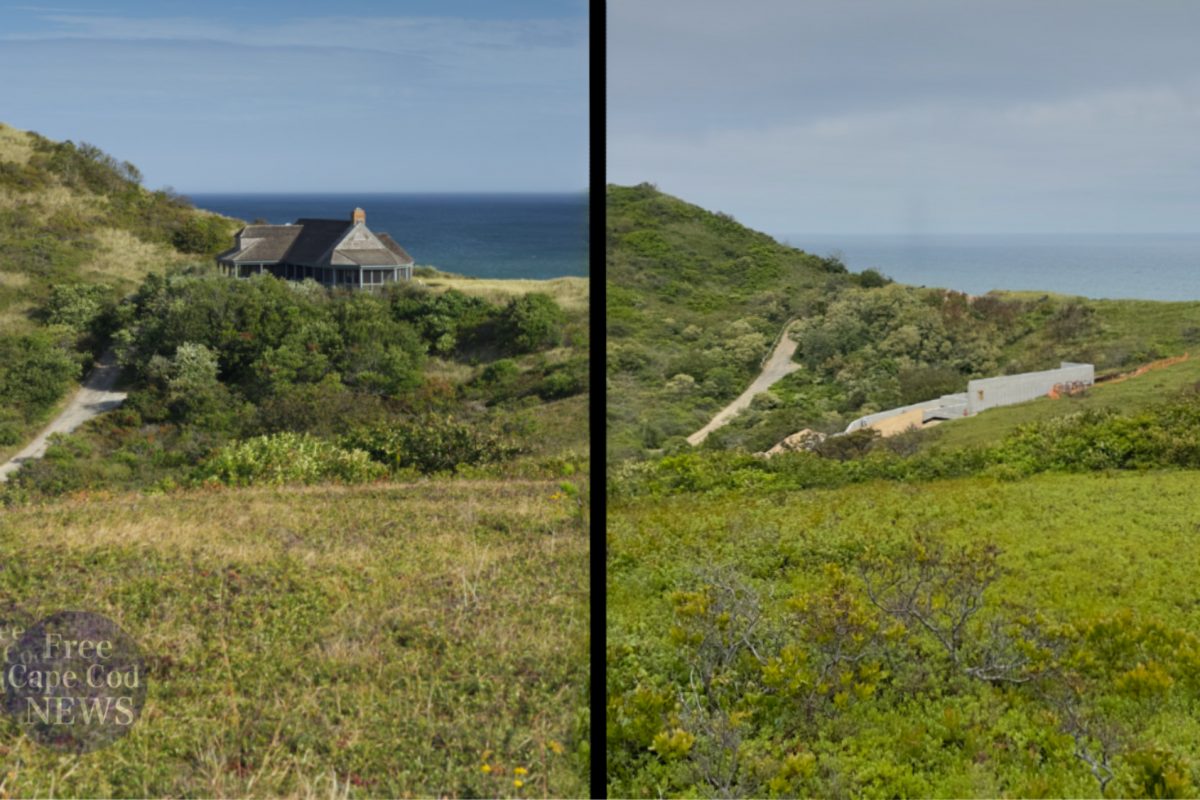Beyond Repair: Cape Cod’s Ravaged Coastline and Vanishing Communities
Hey there, Cape Codders, buckle up for a sobering update on the relentless erosion crisis hitting our picturesque coastline. It’s time to face the harsh reality and acknowledge the negative forever impact that we’re grappling with.

Exploring the Impact of Coastal Erosion on Cape Cod: Ravaged Communities and Vanishing Seaside Residences
In recent years, Cape Cod has become a battleground where nature’s unyielding forces have wreaked havoc on our coastal communities. The erosion crisis has taken its toll, leaving a trail of destroyed houses in its wake. Once charming seaside residences now lie in ruins, mere skeletons of the homes they once were.
But it’s not just the homes that have fallen victim to the merciless ocean waves. The dunes, once our natural defense against erosion, have suffered devastating breaches. These breaches have left our coastal areas vulnerable and exposed, with little protection from future storms and rising sea levels. The very essence of our beloved Cape Cod is slowly slipping away.
Cape Cod erosion impacts
The impact of this erosion crisis extends beyond the destruction of houses and breaches in dunes. Flooded roads have become a common sight, making transportation a nightmare for residents and visitors alike. What was once an idyllic summer retreat has turned into a battle to navigate the flooded arteries of Cape Cod.
Local residents are fighting tooth and nail to combat this ongoing crisis. Community efforts to raise awareness and rally support for erosion control projects have seen limited success in the face of this mammoth challenge. The stark reality is that our beloved coastline may never be the same again. It’s a somber thought that weighs heavily on the hearts of Cape Codders.
Urgent Call for Action: Comprehensive Strategies to Combat Cape Cod’s Erosion Crisis and Restore Hope to Affected Communities
While some discussions and debates about solutions are underway, the magnitude of the crisis demands urgent action. We need bold and effective measures to mitigate the forever impact that erosion has on our coastline. This means investing in comprehensive coastal management strategies, bolstering dune restoration efforts, and exploring innovative engineering solutions to fortify our vulnerable areas.
But let’s not forget the human aspect of this crisis. The emotional toll on those who have lost their homes and the sense of stability and security is immeasurable. The memories and history tied to those now-destroyed houses will forever be etched in the hearts of the affected families.
When will Cape Cod disappear?
The question of when Cape Cod will disappear is complex and depends on various factors, including coastal erosion rates, sea-level rise, and potential mitigation efforts. While it is impossible to provide an exact timeline, we can discuss the potential scenarios based on current knowledge and projections.
Cape Cod is vulnerable to coastal erosion due to its geology, which consists of easily erodible sedimentary deposits and a dynamic coastal environment. The region experiences both natural and human-induced erosion processes. Natural factors include wave action, storms, and long-term sediment transport, while human activities such as shoreline development and climate change contribute to the acceleration of erosion.
Sea-level rise is a significant concern for Cape Cod. As global temperatures continue to rise, resulting in the melting of ice sheets and thermal expansion of seawater, sea levels are projected to increase. Higher sea levels can exacerbate coastal erosion by providing more energy for waves and storm surges to erode the shoreline.
However, it’s important to note that Cape Cod’s disappearance as a whole is highly unlikely. While certain areas may experience significant erosion and loss of land, the entire peninsula is not expected to vanish completely.
To mitigate the impacts of coastal erosion, various strategies can be implemented. These include beach nourishment, where sediment is added to replenish eroded beaches, and the construction of seawalls or other forms of coastal protection. Additionally, promoting sustainable coastal management practices, preserving natural dune systems, and maintaining healthy sediment dynamics are crucial for long-term preservation.
It is essential to monitor and adapt to the changing coastal dynamics through ongoing research, data collection, and planning. Government agencies, local communities, scientists, and stakeholders need to collaborate to develop comprehensive coastal management plans that balance environmental preservation, community needs, and economic considerations.
Cape Cod erosion prevention
As Cape Codders, we must come to terms with the reality that our beloved coastline is changing irreversibly. It’s a bitter pill to swallow, but it’s vital to acknowledge the challenges we face. Together, we can support our fellow residents, advocate for meaningful solutions, and ensure that future generations understand the fragility of our coastal environment.
The erosion crisis serves as a stark reminder of the immense power of nature and our responsibility to protect and cherish our surroundings. Let us unite as a community, face this challenge head-on, and work towards preserving the essence and beauty of Cape Cod for generations to come.
Join the movement to protect Cape Cod’s coastline! Support local organizations, engage in community discussions, and advocate for sustainable coastal management practices. Together, let’s make a difference! Follow us on Twitter (@dariusaniunas) for updates and join the conversation to preserve the natural beauty and resilience of our beloved Cape Cod.
By Darius Aniunas / Free Cape Cod News